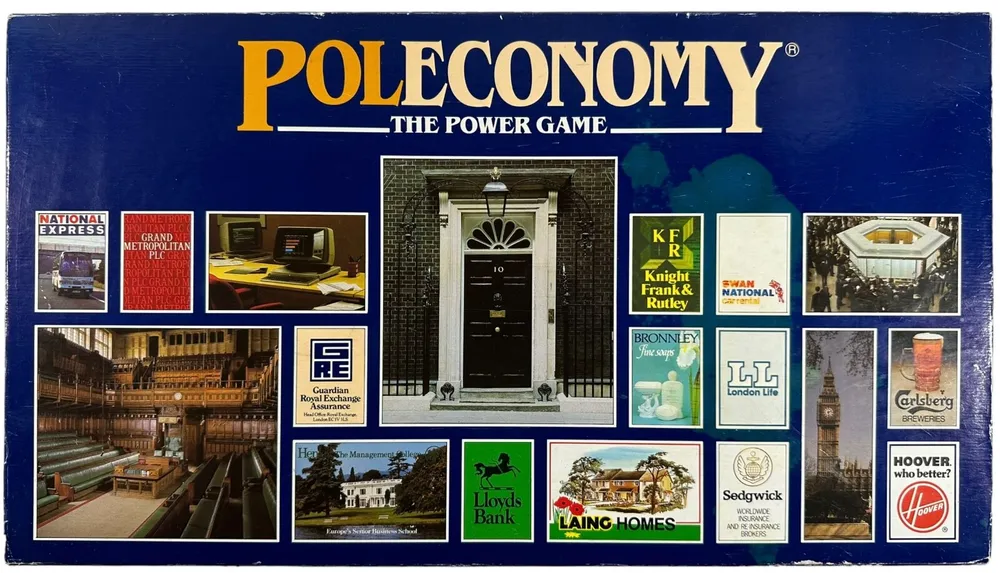Poleconomy (1977)
Poleconomy
Poleconomy is a board game invented by New Zealander Bruce E. Hatherley and first published in 1980. The game is set in a stylized economic and political environment, where players compete to acquire properties and investments through companies represented on the board. The game has been published in several countries, including Australia, New Zealand, Canada, South Africa, and the United Kingdom, with each version featuring companies and advertising properties relevant to the region.
Why is Poleconomy Popular?
Poleconomy is a popular and significant board game for several reasons:
– It is a capitalist’s dream, allowing players to buy and sell companies, invest in insurance, bonds, and bid for takeovers.
– The game board is divided into companies rather than properties, making it unique and appealing to players interested in business and economics.
– It has been published in multiple countries, showcasing the adaptability of the game to different markets and its ability to engage players with varying interests.
– Poleconomy is considered a great political and economic simulation board game, requiring more intellectual commitment than a typical board game.
Game Components of Poleconomy
How To Setup Poleconomy
Setup involves placing the game board, distributing player tokens, and allocating initial funds. Each player starts with a set amount of money and a few company shares. The board is populated with company squares, advertising spaces, and economic event cards. The entire setup process typically takes 5–10 minutes.
Gameplay Mechanics and Game Objective
Mechanics
Game Objective
Player Experience
Playing Poleconomy is an engaging and educational experience. It combines the thrill of acquiring wealth with the complexity of navigating political and economic landscapes. Players must balance their financial strategies with the need to influence government policies, making it a game that requires both luck and strategic thinking.
Pros
Cons
Personal Thoughts on Poleconomy
Poleconomy is ideal for those interested in economics, politics, and strategic board games. It is a great tool for educational purposes, especially for students or professionals looking to understand the interplay between government and economy. However, it may not be the best fit for casual gamers seeking quick, light-hearted gameplay due to its complexity and lengthy gameplay sessions.
We are supported by our audience. When you purchase through links on our site, we may earn an affiliate commission, at no extra cost for you. Learn more.

